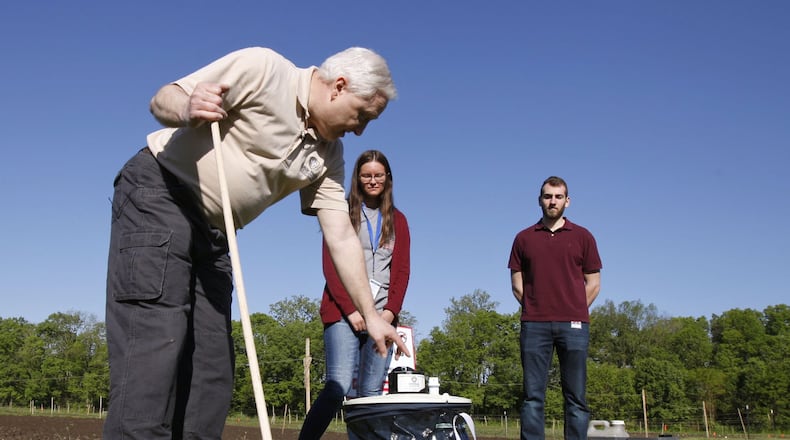In 2018, 450 mosquito pools were trapped with 71 identified as having mosquitoes that tested positive for West Nile virus, which is the most common virus spread by mosquitoes in the area.
Tom Hut, Bureau of Special Services supervisor at Public Health, said each year, the mosquito surveillance program traps mosquitoes from May through October and identifies species and sprays areas where West Nile is found.
“We trap at public playgrounds and parks throughout the county,” Hut said.
The program staff also educate the public about how to reduce the mosquito population on their property and protect themselves from bites.
West Nile virus is the most common virus spread by mosquitoes in the area, but people can also get sick from less common viruses like Zika, Dengue and Chikungunya.
In rare cases, these viruses can cause severe disease or even death. Many people infected with these viruses do not have symptoms or have only mild symptoms like fever, headache, nausea and vomiting.
Public Health uses different types of traps to attract different species of mosquitoes. In a demonstration in Wegerzyn MetroPark, which is one of the places they do surveillance, Hut showed one type of trap that uses a sweat-scented lure to draw in mosquitoes and another trap that uses a mix of standing water and guinea pig food, which attracts certain mosquitoes.
MORE: ‘Surprise bills’ target of state budget proposal
“Mosquitoes need water to breed, so you need to eliminate all standing water on your property,” he said. “A mosquito will grow from egg to adult in about seven days.”
When the mosquitoes are trapped and sample pools of 50 mosquitoes are sent to Ohio Department of Health, which turns the samples into “mosquito mash” and tests the mash for the presence of a mosquito borne disease, said Hut.
If mosquitoes are caught and found positive for West Nile, then Public Health can spray the area with an EPA-approved pesticide. The department sprays at night so not to kill bees, which are out pollinating during the day.
About an ounce of the liquid is sprayed into the air, which covers about 300 square feet and stays suspended for about 30 minutes to an hour and kills the mosquitoes that are in the air.
It is not possible to kill all the mosquitoes, however, the spraying lowers the number.
It is still important for residents to take precautionary measures, such as eliminating standing water, where mosquitoes can breed; wearing light-colored clothing; using an EPA-approved repellent; and if possible, avoiding outdoor activities during peak hours around dusk.
About the Author
